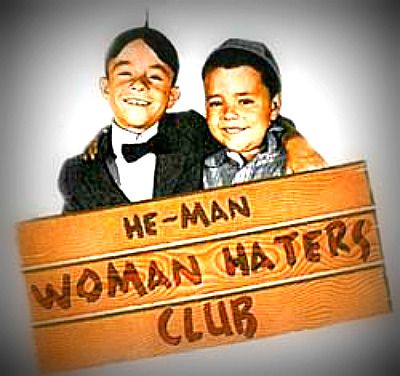Ken, firstly, I appreciate your open-mindedness. I also apologize if I came on strong. I do like to argue a point, but I want to assure you that that is all I am doing -- I do not mean to attack you as a person.
Locutus already covered a lot of salient points, but I also have some points I'd hope you'll consider when thinking about your position:
First, a lot of your worries are coming from your observations of your peers and younger people -- seeing behaviors that concern you and therefore cause you worry about the state of society in the future, correct?
The problem with this position is that you are generalizing the behavior of a small group of people at a very specific stage in their development, to all people at all times. Think of it this way: when you see toddlers crying over a bumped knee do you lament that the future generations will be wimpy crybabies? Of course not, because crying over a bumped knee is developmentally appropriate at that age. You can't generalize your peers' behavior to the future because they haven't grown up yet. Sure, there are some brilliant, responsible, respectful, mature teens -- and equally there are some childish adults, but generally speaking, people do mature, and so we can't make grand-scale predictions about the devolution of society based on the behavior of teens any more than we can based on the behavior of tots -- because, unfortunately, it is developmentally appropriate for teenagers to be stupid, vapid little shits.

If you need further evidence to support this idea, take a look at the following quotation. It's risking a cliche to post it, because people so often moan about the state of the next generation that this gets trotted around all the time:
"Our youth now love luxury. They have bad manners, contempt for authority; they show disrespect for their elders and love chatter in place of exercise; they no longer rise when elders enter the room; they contradict their parents, chatter before company; gobble up their food and tyrannize their teachers.”
Sounds familiar, huh? But you know who wrote that? Plato, attributed to Socrates. Every generation laments the failings of the next, because they are failing to grasp that the kids will grow up!
Now, the problems with your definitions of manliness, why they're based in a false premis, and why they are offensive. You seem to have an idea of what you think a man is, and you seem to think that there were more men who typified your ideals in the past. Thing is, there weren't. There was never a time where the majority of men were dignified and gentle, yet still rough-and-tumble and sturdy, Humphrey Bogartesque heroes. Those are just movies and rose-tinted memories of octogenarians reliving imagined glory days. You are basing your ideas of manliness on a Gold Standard of a Golden Age that never actually existed. False premis.
Next, your standards are completely arbitrary. They are based only on fashions, nothing more. In Ancient Egypt manly men had tiny corseted waists and eye liner. In 16th century Europe and East Asia manly men wore the highest high heels possible, with bright red soles -- high heels were only adopted by women during a stage when androgyny was In and women started to wear more manly clothes. Pink was considered a masculine color until the 1930s. Gender roles were generally equal among common folk in most of Europe well through the Middle Ages. In other cultures many of our stereotyped gender behaviors are completely reversed. Homosexuality has gone in and out of style over the decades, and in the West really only became associated with femininity in the 19th century. In some tribes (in Papua New Guinea, if I am remembering correctly, though if someone knows, please correct me) one is only considered manly if one gives and receives blow jobs. In Ancient Sparta, the manliest of men were rampantly homosexual and women were dressed as men on their wedding days! The point is, what is seen as masculine or feminine is completely arbitrary and changes over time. There is no set of standards that make one man more of a man than another, whether it be fashion, skills or hobbies, physical capability, attitudes towards women, sexual orientation, whatever. And the same goes for women -- you brought up shaving of body hair as making men less manly. Shaving of body hair only became fashionable for Western women in the 1920's -- am I less of a real woman since I shave my armpits and legs? After all, real women are hairy. Do you see how ridiculous all your rules sound in the context of history? Can you also see how it is offensive to men who don't fit into your arbitrary rule set to be told they are not real men?




